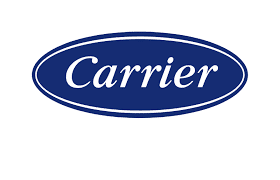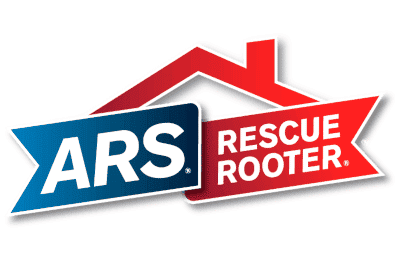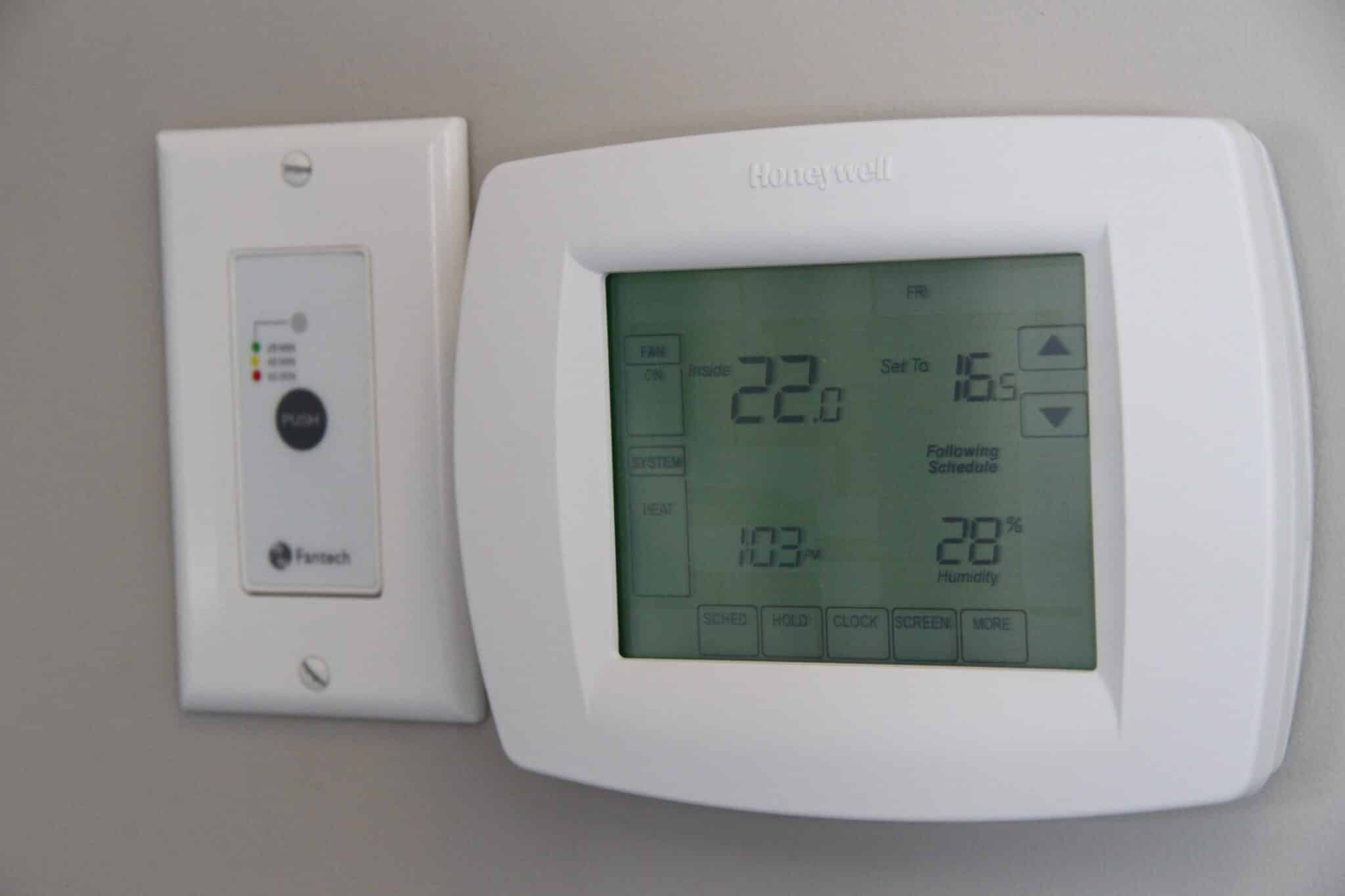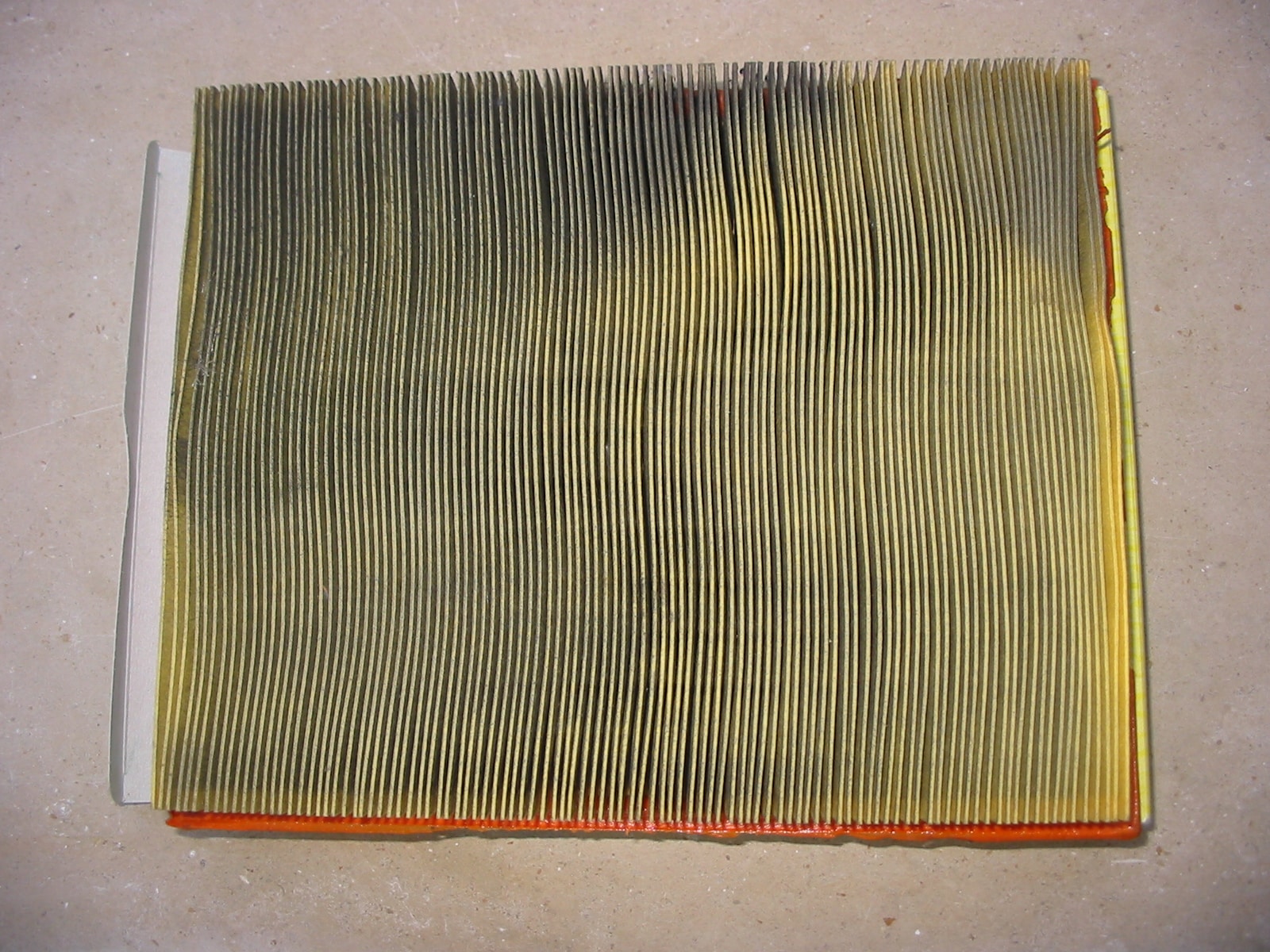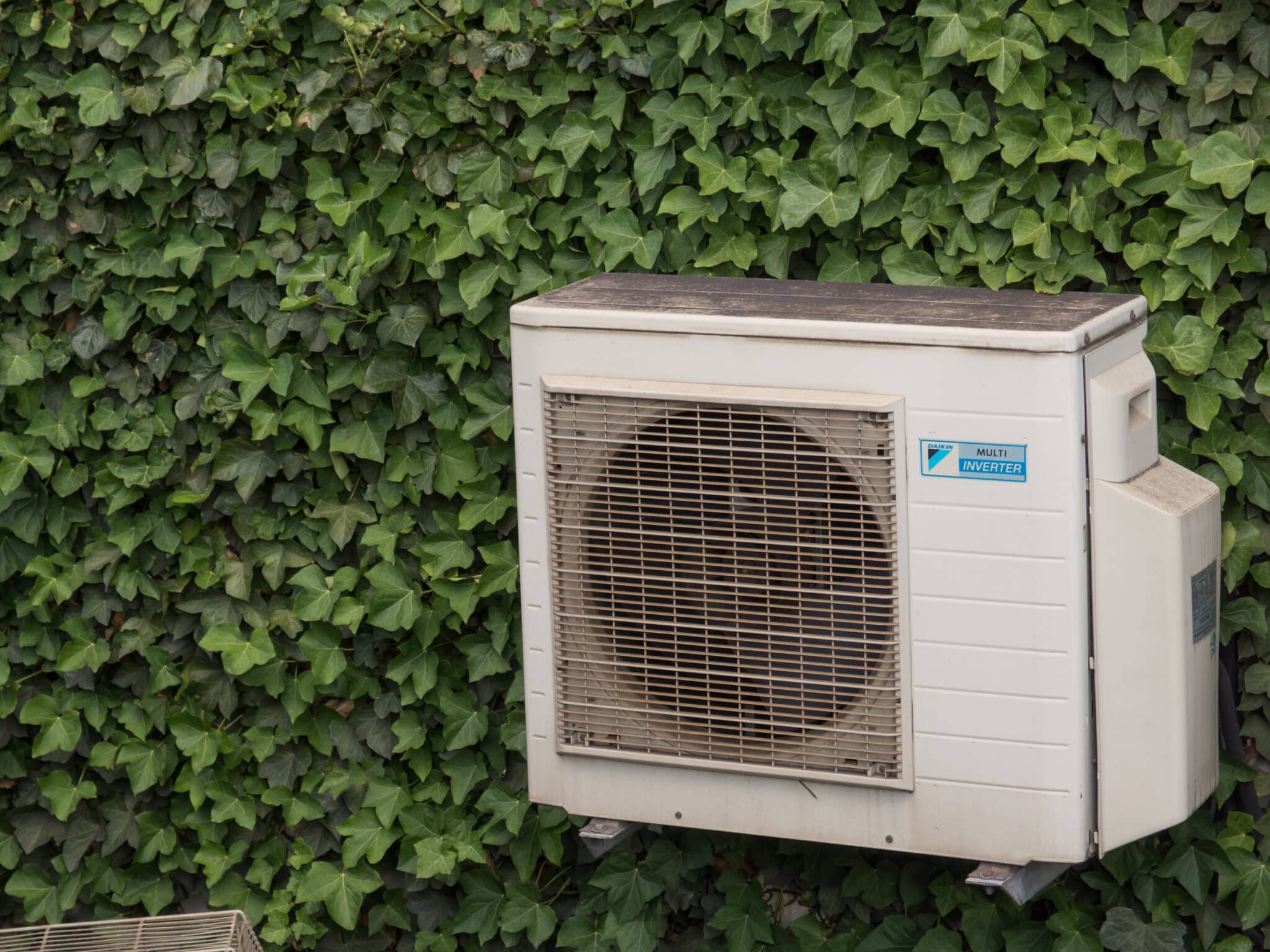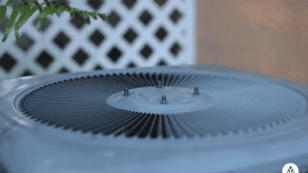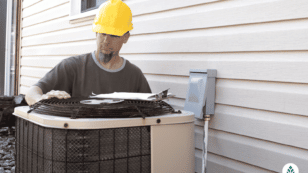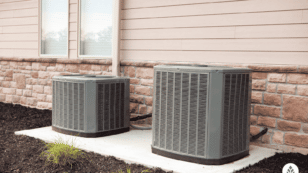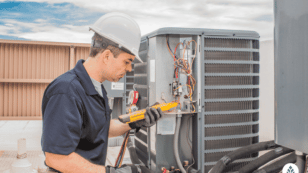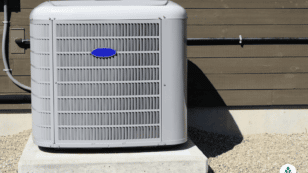

Is Your AC Not Cooling? Here’s How to Fix It (2024)
In this EcoWatch guide we’ll cover the following topics:
- What to do if you have an AC not cooling
- Reasons why your AC is running but not cooling
- How to fix an AC that is not cooling
- If you should call a technician if your AC is not cooling
Each product and or company featured here has been independently selected by the writer. You can learn more about our review methodology here. If you make a purchase using the links included, we may earn commission.
If your air conditioner is not cooling, there may be some reboots you can do to your system to ensure proper airflow, but most often than not, a broken AC unit will require connecting with a local professional to identify ac repairs or may even require a new AC unit. Your air conditioner not cooling can be as simple as making sure you have charged batteries in your thermostat, once you’ve identified that small fix, calling a professional will be the best and fastest way to a cooler home.

Carrier Heating and Cooling
Pros
- Wide availability (25+ states)
- Focus on energy efficiency
- Transparent about environmental impact
- Industry-leading company
Cons
- Weak or non-existent warranty
- More expensive than some competitors

ARS Rescue Rooter
Pros
- Focus on energy efficiency
- Positive customer reviews
- 15+ years in business
- Outstanding social impact
- Strong warranty
- Offers eco-home systems (heat pumps, solar, etc)
- Financing options available
Cons
- Available in fewer than 25 states

Service Experts Heating
Pros
- Wide availability (25+ states)
- Positive customer reviews
- 15+ years in business
- Outstanding social impact
- Strong warranty
- Offers eco-home systems (heat pumps, solar, etc)
- Offers money-saving membership programs
Cons
- No emergency service
AC Not Cooling: Troubleshooting Guide
Has your central air conditioner been on for hours, but your house is staying hot? Or maybe your air conditioning unit is blowing warm air or has a low airflow?
If you’re experiencing any of these issues, you have an AC not cooling. That means it’s using energy and costing you money even though it’s not doing its intended purpose. That’s frustrating, but it’s a fairly common issue, so try not to sweat it.
There are several common reasons why your AC unit isn’t cooling properly. It could be as simple as changing a thermostat setting or changing a dirty air filter, which you could fix on your own.
Or it could be more complicated, like a damaged heat pump or a frozen evaporator coil, in which case you’re better off calling an HVAC technician.
The good news is that several things can be done to fix an AC unit that isn’t cooling. Because most homeowners are not HVAC experts, let’s first do a quick lesson on how AC systems operate.
How Air Conditioners Work
To better understand why your AC is malfunctioning, you should understand the basics of how air conditioning systems work. While there are several types of air cooling systems, most units operate in the same way and involve both indoor and outdoor units.
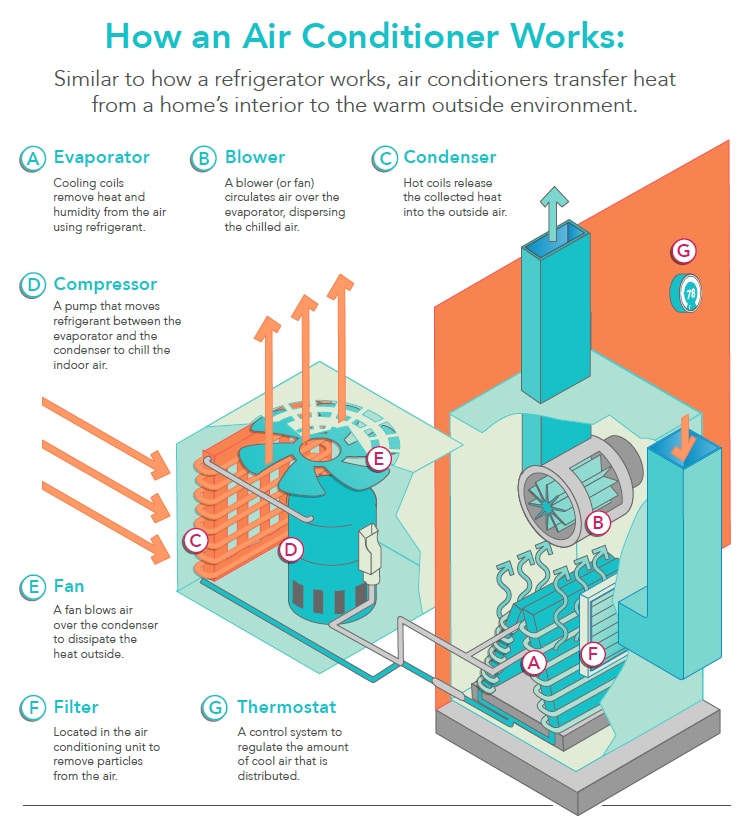
There are three main steps to an AC unit operation:
- The AC cools your space with a fan (called a blower) that sends air over cold indoor coils, called evaporator coils, sending cold air into your space until it reaches your desired temperature. Meanwhile, an outdoor hot coil called the condenser releases the hot indoor air outside.
- A pump, called the compressor, forces a liquid refrigerant between the evaporator and the condenser coils. The refrigerant evaporates in the (aptly named) evaporator coil, causing it to become extremely cold as it turns from liquid to gas.
- The hot refrigerant gas that’s created is then sent back from the pump and is sent outdoors through the condenser unit, where it cools back into a liquid. Then the cycle repeats.
If you’re having AC problems, it’s best to call an expert. Click one of the providers below if you’d like to get connected with an HVAC technician.
7 Reasons Why Your AC is Not Cooling and How to Fix It
If your air conditioner is not turning on or the fan motor sounds funky, it’s a clear sign to call an AC repair contractor. But it’s a more confusing situation when your AC seems to be working but isn’t blowing cool air.
These are the seven most common causes of an AC not cooling:
- The thermostat needs to be reset
- The air filter is dirty
- The evaporator coil is dirty or frozen
- The condenser unit is blocked or faulty
- There’s a refrigerant leak
- The compressor is malfunctioning
- The ductwork needs repair
1. The Thermostat Needs to be Reset
This may seem obvious, but sometimes an AC not cooling is due to a setting on your thermostat. It could also be that your thermostat has low or dead batteries.
If your thermostat isn’t set on “cool,” or if it’s set on “fan” instead of “automatic,” it may blow hot air out of your AC unit. Also, your desired temperature needs to be lower than the current temperature set.
Solution: Check that your thermostat has the correct settings as mentioned above. If that’s all in check, or if your screen is malfunctioning, try changing the batteries. If your thermostat isn’t working, you’ll need to call an HVAC technician.
2. The Air Filter Is Dirty
A dirty air filter not only lessens air quality but also reduces airflow, which could be the reason your AC is not cooling your home.
HVAC professionals recommend changing out your air filter every 90 days, or three months. If you live in an extreme climate where your air conditioner works hard, you may want to change the filter every 45 days for maximum energy efficiency.
Solution: Check your AC unit’s filter, typically found near the indoor air handler assembly. If it’s dirty or clogged, replace it with a new filter. If it looks clean, it’s likely not the cause of your AC not cooling.
3. The Evaporator Coil Is Dirty or Frozen
The evaporator coil is located in your indoor unit and is a key part of facilitating heat transfer from indoor air to the refrigerant flowing through the coil. It’s not uncommon for these indoor coils to get dirty and even moldy over time.
Dirty coils can lead to debris and filth buildup that clogs your evaporator coil, preventing heat transfer from the air to the refrigerant. This also causes the refrigerant to freeze, and a frozen evaporator coil will cause an AC to stop cooling.
Solution: You can try cleaning out the coils on your own, but we recommend calling in an HVAC technician for this job, as it requires you to take it apart.
4. The Condenser Unit Is Blocked or Faulty
The outdoor coil — called the condenser coil because it wraps around your outdoor condenser — can also get dirty and clogged.
Because your condenser coil and unit are responsible for releasing hot air outdoors, a clogged condenser will prevent your AC system from releasing heat and therefore lead to your AC not cooling properly.
Similarly, a faulty or broken condenser fan won’t properly release heat from the condenser.
Solution: Clean your condenser unit of any build-up or plant debris that might be clogging it. If your fan isn’t turning, you may need to replace the motor or the fan, which may be a job better equipped for an HVAC technician.
#1 AC Problem With Central Air Conditioning Not Cooling
If your AC unit is still under warranty, a faulty condenser unit will likely be replaced for free.
5. There’s a Refrigerant Leak
If your AC is running but not cooling, there could be a refrigerant leak due to cracks or splits in the coils. Having low refrigerant levels will cause your AC to stop cooling.
Solution: There’s no DIY option here. If your AC system is leaking refrigerant, you need to call an HVAC technician. Only certified technicians can buy refrigerant (previously known as Freon).
6. The Compressor Is Malfunctioning
The AC compressor is a pump that circulates the refrigerant between the indoor and outdoor units to keep the cool air flowing. The compressor may malfunction for one of the following reasons:
- Dirt or mineral contaminant built up in the suction lines or coils
- Oil lubricant or refrigeration levels are incorrect
- Electrical burnout
Solution: You’ll likely need a licensed HVAC technician to repair or replace the compressor. Trying to DIY a compressor issue can be risky to both yourself and your AC unit.
7. The Ductwork Needs Repair

If you have a central air conditioner that’s blowing low or warm air, or if your AC is not cooling every room, the issue could lie in your ducts.
An air leak in your ducts causes uneven cooling throughout the home. If you have AC not cooling one area but working fine in another, there’s likely a crack in your duct that needs to be repaired. It could also simply be that the inside of your ducts has dirt or debris blocking the airflow.
Solution: If you have exposed ducts, you can examine them to see if there’s a crack or loose joint. If you can find the issue, you can repair it with duct tape. But if the ducting issue is within your walls or ceiling, you’ll need to call an HVAC technician.
Should You Call an HVAC Technician for an AC Not Cooling?
There are several reasons for an AC not cooling. If it’s a thermostat setting or air filter issue, you can probably fix it yourself. Read our troubleshooting tips above if you’re looking to save some money with DIY AC repair.
However, if your AC is not cooling because of an internal issue on your AC unit or in your ducts, it’s better to call an HVAC technician. If you don’t know exactly what you’re doing, you can put yourself and your unit at risk by trying to fix it, which will be much more expensive in the long run.
FAQ: AC Not Cooling
There could be a number of reasons why your AC unit isn’t cooling properly. Usually, it’s a fairly simple fix, involving changing a thermostat setting or changing a dirty air filter. However, if you can’t identify the solution with this guide, you may be best calling an HVAC technician.
If you’re trying to fix an AC that isn’t cooling, we recommend starting with some simple steps, such as checking the air filter or the settings on your thermostat. Usually, it’s a fairly simple fix. However, if you suspect a greater issue, you may need a technician to identify the best way to fix an AC rather than attempting to do so on your own.
If you’ve checked both your thermostat and air filter and can rule those issues out, then yes, it’s best to turn off your AC if it’s not cooling until you can identify the problem.
Compare HVAC Installers Near You
-
- Wide availability (25+ states)
- Focus on energy efficiency
- Transparent about environmental impact
- Industry-leading company
- Weak or non-existent warranty
- More expensive than some competitors

 233k
233k  41k
41k  Subscribe
Subscribe 
